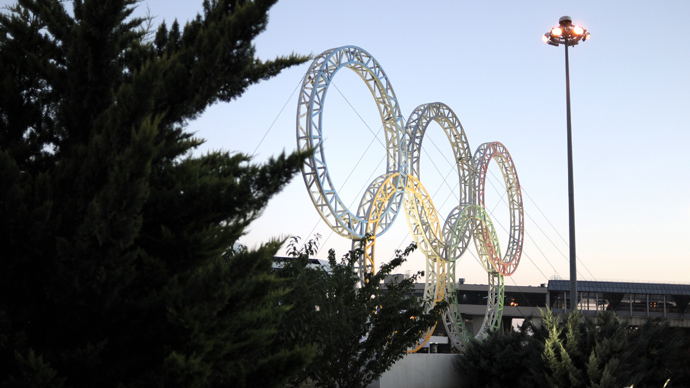Sochi Olympics: Protest and participation trumps ‘sledgehammer’ of ban or boycott

There is much more to be achieved in regard to gay rights in Russia by engaging and participating in the Sochi 2014 Olympic Games rather than banning and boycotting, political commentator Adrian Hilton told RT.
RT:The Olympics are often used by people with a cause to fight. Do you think gay rights are so big an issue to affect the winter games?
Adrian Hilton: I am not sure gay rights anymore are of a bigger issue than liberty for dissident politics was in Beijing. There is a way of attacking this that has nothing to do with bans or boycotts. I say better to participate and protest than ban or boycott.
RT:Is there any other way to fight for gay rights without using a major event to gain attention?
AH: I believe that the gay issue in Russia is not a new one. This has been emerging over the past 6 or 7 years. There are various regions in Russia who have passed these laws over previous years. Only now it is attracting global attention and therefore comments from people like David Cameron and President Barak Obama and gay activists like Steven Fry. I am committed toengagement in counties like Russia and I believe that the more we engage with them and protest in a context, the better the result will be for all concerned.
RT:Would you agree that there has been an overreaction to this new Russian law then?
AH: It’s not much of an overreaction. There is something irrational about it. On my way to the studio I passed bars who have banned Russian vodka. I then drive around the corner and see the Bolshoi are playing at the Lloyd Opera house and I am concerned that there is a certain disparity here. People like Steven Fry want to ban the Olympics. He calls the ban essential. That will affect no one but the global sporting world and of course, normal ordinary every day Russian life. Then on the other hand he says that he wants to rejoice in the way he felt in 2012 last year in London. It made him feel proud to be British. He wants to deny those very feelings, that exultation, that glory to ordinary every day Russians. I just think it’s irrational.

RT:Steven fry also urged the athletes to at least spoil the event for President Putin with their use of body language. Do you think athletes will want to become involved in that?
AH: There is a constant leitmotiv of keeping sports out of politics. I have no objection at all to Steven Fry’s exaltation to sports people all over the world to do a gesture like this [places crossed hands on chest – ed.]. But he also rather flippantly suggested to protest like that [extends bent wrist – ed.]. There is certain levity to the protest that I find a little distasteful. By all means protests, if you want to wear rainbow colored tops or pink tops, do so. I just don’t think that this ban that he said is essential at all. There is much more to be achieved by engaging and participating than by banning and boycotting.
RT:Do you get any kind of feeling that there might be a certain amount of sympathy with this law that aims to prevent what it calls gay propaganda?
AH: I don’t think anybody here would doubt the fact that
Putin is trying to shore up his traditional vote and in Russia
more than 70% favor this law. There is a certain social
conservatism there that he is clearly trying to lock into and
attract the support of. It’s a minority pursuit in gay rights
there. I think it is our job here in the free West to try and
engage with that, to help it to adapt, to protect the rights of
minorities certainly all over Russia. But let’s not forget that
Russia is a signatory to the European convention on human rights.
Russia is a member of the council of Europe. There are ways of
achieving this legally through the courts that the sledge hammer
of banning and boycotts do not achieve. What did they achieve in
1980?
The statements, views and opinions expressed in this column are solely those of the author and do not necessarily represent those of RT.












